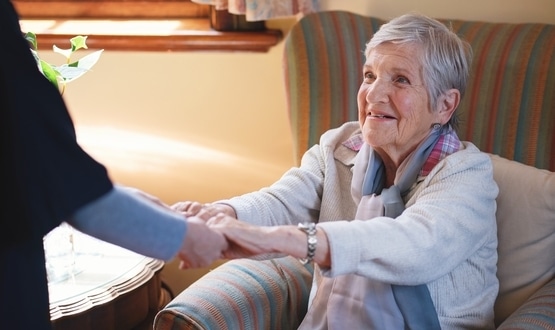Consultant Connect tech keeps thousands of patients out of hospital
- 14 March 2024

Technology from Consultant Connect helped keep 150,000 elderly and frail patients out of hospital last year, by connecting primary care clinicians with specialists for expert advice.
The telemedicine provider’s technology is helping to speed up communication between GPs, paramedics and other primary care clinicians, and specialist consultants who are able to provide tailored advice from anywhere in the country.
During 2023, 200,000 calls were made using Consultant Connect about elderly patients. In 75% of the cases, the patient didn’t require a trip to hospital as a result. Around 5,000 of those calls were made using the dedicated acute frailty line for patients with particularly complex needs – and it was successful in treating 60% of those patients without a hospital admission.
Dr Laura Godfrey, GP lead for Weymouth and Portland frailty team, and a user of the technology, said: “It’s not always clear which frail and elderly patients need to go to hospital, often they have complex needs that change the care they require. In these cases, it’s a real benefit to have expert advice on if they are best being treated at home or if they need further investigation.”
Consultant Connect can ensure patients receive help within minutes, in comparison to the hours it could take if calls were made through a hospital switchboard. Not only can prompt care be accessed if necessary but it also improves the care journey for patients and helps to keep people out of already busy NHS hospitals.
To date, 20 NHS trusts have implemented Consultant Connect technology and are benefitting from its support on its dedicated frailty pathways. These include South Warwickshire University Foundation Trust and Buckinghamshire Healthcare Trust, as well as other NHS trusts in the Midlands, London and the East of England.
Jonathan Patrick, CEO of Consultant Connect, said: “Clinicians have an incredibly important job to do and our job is to make sure that they don’t waste time trying to find the right specialist to advise on their patient. Our tech improves communication between primary and secondary care with calls answered on average in 25 seconds. This means more patients get the care they need sooner, with many avoiding lengthy hospital waiting lists.”




